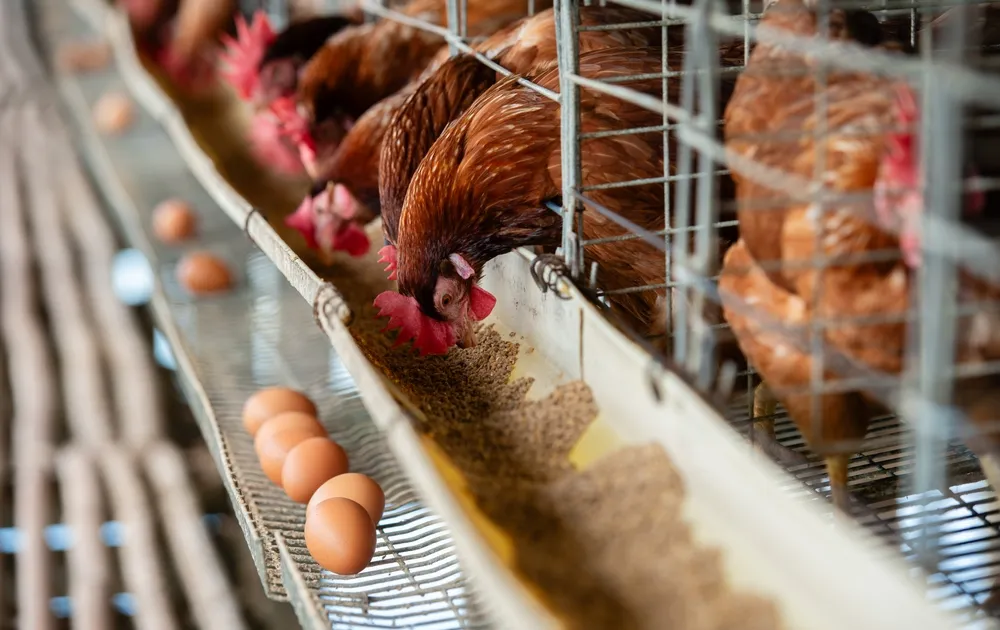Bird flu impacts everything from farm animals to grocery prices. The virus poses more than just a health risk; it has ripple effects that touch the global economy. Staying informed about the virus and how to protect yourself is essential in today’s interconnected world. Understanding its impact can help you make smarter choices for your health.
 Shutterstock: I WALL
Shutterstock: I WALLWhat Is the Bird Flu?
Bird flu, also called avian flu, refers to influenza viruses primarily affecting birds. These viruses, however, also have the potential to infect humans. Bird flu viruses like H5N1 and H7N9 can spell disaster for poultry populations. When outbreaks occur, they often lead to culling, causing enormous economic strain. The close contact of humans with infected birds can result in human infections, though so far human infections have been rare.
Impact on Poultry, Cows, and Cats
Poultry is the most affected by bird flu, often suffering from severe illness or dying quickly. This not only disrupts the poultry industry but also causes significant financial losses. Although cattle and cats have less commonly been affected, they have recently contracted the virus. In rare cases, infected animals can act as a bridge to human infection.
Human Health Implications
While avian flu predominantly affects birds, humans can become infected in specific conditions. These cases often arise through direct interaction with infected birds or contaminated environments. Symptoms often start like regular flu but can escalate to severe respiratory distress or even be fatal. Vigilance and prompt medical care are essential if exposure occurs.
Recognizing Bird Flu Symptoms in Humans
Identifying bird flu symptoms early could be crucial for effective medical intervention. Initial signs often resemble those of seasonal flu and include fever, cough, and sore throat. Patients may also experience muscle aches, headaches, and respiratory difficulties. In severe cases, symptoms could quickly escalate to pneumonia or acute respiratory distress, requiring urgent care. If you’ve been around infected birds and show these signs, seek prompt medical attention.
The Role of Bird Flu in Egg Prices
When bird flu strikes, poultry farms resort to culling to contain the outbreak. Consequently, reduced supply can drive up the cost of eggs worldwide. These supply disruptions often lead to sticker shock at grocery stores and restaurants. Take Waffle House, for instance. They recently introduced an egg surcharge. And then there’s the recent heist of 100,000 eggs in Pennsylvania, showing how valuable eggs have become.
Steps To Protect Yourself
Protecting yourself from bird flu starts with informed choices and habits. Firstly, avoid direct contact with sick or deceased birds and livestock to lower the risk. Drink pasteurized milk and consume meat and eggs that are thoroughly cooked. Follow public health advisories regarding outbreaks to stay ahead of risk factors.
What About Protecting Pets?
Household pets, particularly cats and dogs, could be at risk of contracting bird flu under certain conditions. To protect them, keep pets away from wild birds and contaminated areas where the virus might be present. You may want to give them a little more supervision than usual, helping to ensure they stay away from wild birds, whether dead or alive.
Importance of Public Health Guidelines
Adhering to public health guidelines can be a crucial step in protecting yourself from bird flu. These recommendations are often based on expert research and designed to minimize exposure risks. Whether it’s avoiding contact with wild birds or staying updated on outbreaks, following these can go a long way.
Bird Flu Vaccine Development
In January, the Department of Health and Human Services awarded $590 million in funding to Moderna to fast-track the development of a mRNA-based bird flu vaccine. Moderna’s cutting-edge technology could potentially lead to a more efficient and effective solution against avian flu. Such advancements are crucial, especially for those working closely with poultry and at higher risk of exposure.
Safeguarding Your Health
Understanding bird flu’s complexity and impact helps you safeguard your health and that of those around you. With practical steps like following health guidelines, consuming pasteurized products, and watching vaccine developments, you protect yourself and the community. Awareness and proactive measures remain crucial as we face these viral challenges together.


